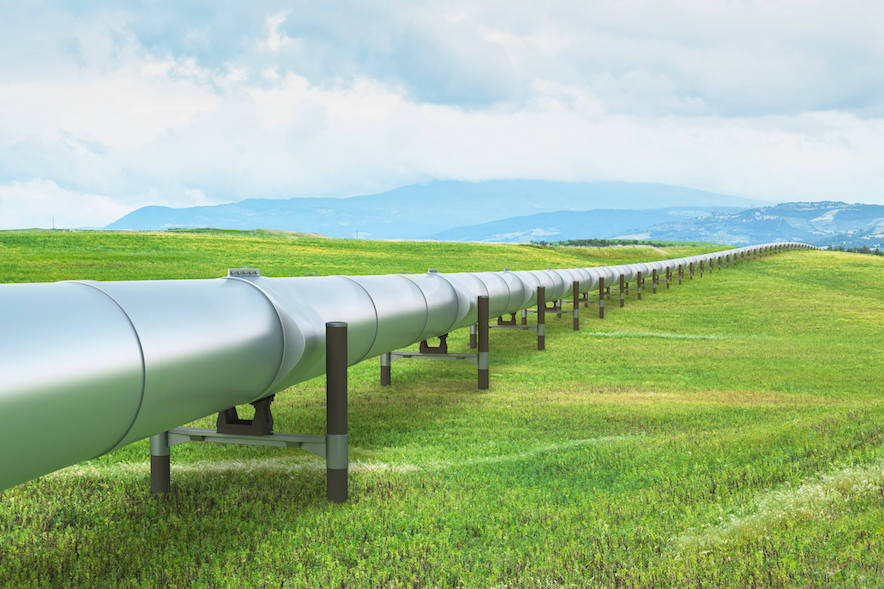
By Kim Catechis, Investment Strategist, Franklin Templeton Institute
and Andrew Buntain, Institutional Portfolio Manager,
Franklin Bissett Investment Management
(Sponsor Content)
The world is living in volatile times.
East-West geopolitical tensions, which had been building even before the COVID-19 pandemic upended the lives of millions around the globe, have exploded into war in Europe. The Russia/Ukraine conflict is now well into its sixth month, with no end in sight. Severe sanctions disconnecting Russia from the West are structural and unlikely to be removed even after the conflict is resolved.
There are real consequences for the world from this conflict. Ukraine’s economy has been ravaged. Europe is back to having a militarized border. NATO has grown stronger and is spending on defence; more than 2% of Gross Domestic Product (GDP) is expected to be allocated to military expenses by member nations. Supply chain disruptions have been exacerbated by the upheaval, with an energy crisis in Europe, fears of famine in Africa, shortages of critical products in many industries and the highest inflation levels in over 40 years.
Growth expectations are falling on the growing realization that central banks are not well placed to deal with food price and energy inflation, despite aggressive policy rate hikes. In many countries, including Canada, fears of recession have replaced fears of overheated economies.
Higher commodity prices a boon for producer nations
Prices for the world’s basic commodities — energy, food, metals and minerals, forest products — soared in the first half of the year. In recent months, they have fallen somewhat but remain high, and this situation is likely to continue. Trade patterns in place for 49 years have been destroyed, and new alliances and infrastructure take time to build. As with any change, there will be winners and losers. For commodity producers like Canada, the evolving dynamics open doors to new opportunities.
Energy hits critical mass
Europe has gone on a buyers’ strike against Russia. In response, Russia is turning off the fossil fuel taps. While not a huge obstacle to oil procurement (there is plenty of oil in the world), natural gas is another matter. Russia controls 30% of the world’s natural gas reserves, and all but one of its gas pipelines go to western Europe.
Filling the huge supply gap left by Russia presents a once-in-a-lifetime opportunity for other producers to capture market share in one of the world’s most profitable regions; however, the lack of pipelines to other natural gas-producing regions means that liquid natural gas (LNG) must be transported by ship.
Largely because of transport costs, nearby producers with spare capacity like Qatar, Algeria, and Nigeria, will likely be the winners rather than Canada. In any case, Canada still benefits from the cascading effect of higher fuel prices. In the meantime, close to 20 projects have been proposed in Canada to export LNG through both coasts. Without doubt, there will be other opportunities.
“E” is for environmental backlash
As winter approaches and energy concerns grow, concerns have arisen that attractive prices and the renewed drive to obtain reliable fossil fuel supplies will set back efforts to combat climate change. For Europeans, there is no alternative to ESG; the “green deal” already in place prior to the war has been accelerated. Concurrently, however, a strong view is building that the definition of ESG needs to evolve, with many preferring “sustainability” and a focus on inclusion, rather than the exclusion often associated with ESG.
Overall, Canada’s oil and gas extraction and refining methods are considered very environmentally friendly. One example is a long-time holding in the Franklin Bissett portfolios, ARC Resources Ltd. Rather than pay others to dispose of wastewater from the drilling process, the company’s Montney operation recycles and reuses the water.
The other two letters in ESG — “S” for social and “G” for governance — should not be ignored. In an era where enormous value is being placed on reliability, a stable workforce and good corporate governance have become at least as important as efficiency. Under these criteria as well, Canada performs better than most; the Canadian oil and gas industry is recognized globally for strong social progress and governance metrics.
Agriculture: food for thought
The global response to threats of food shortages has been to advocate opening up more land for crops, but the planet has a limited amount of cropland. Significantly, almost half of the grains produced worldwide are used for animal feed, which people then consume indirectly by eating meat. In Europe, we are seeing an increase in vegetarianism; if meat consumption were to decline further because of the current situation, it could potentially lead to new patterns of behaviour that imply lower demand for animal feed. Elsewhere, food insecurity is growing, especially across Africa.
Ukraine is a major producer of sunflower oils, barley and maize (corn). Grain prices peaked in June as the United Nations struck a deal to allow some Ukraine grain shipments from Mariupol, but there is no guarantee it will continue. In countries most at risk of shortages from the disruptions, such as Nigeria and Bangladesh, people already tend to pay the largest proportion of their budgets for food. Turkey and Egypt are also very exposed to Russian wheat and have little reserve stock.
Increasing crop yields would help with supply, but storage is an issue. Canada is addressing the challenge with construction of several agricultural terminals scheduled for completion in 2029. Genetically engineered seed (GMO) will also likely play a larger role in feeding the world. So far, Europe uses little GMO seed but that could change.
In the meantime, fertilizer use is on the increase and Canada is a major supplier. Nutrien Ltd. is the world’s largest provider of crop inputs and services. In direct response to the onset of the Russia/Ukraine war, the company announced plans to increase potash production capability to approximately 15 million tonnes in 2022, an increase of one million tonnes from previous projections.
Golden (and nickel and aluminum) opportunities for Canada
Electric vehicle (EV) sales doubled in 2021. This massive growth has implications for demand for key battery materials, as the industry will need many times more lithium, cobalt and nickel than is currently available. While the increasing volume of battery production would normally lower costs, rising commodity prices are expected to offset the effect. Alimentation Couche-Tard, another long-time holding in our portfolios, currently operates 1,100 EV chargers at more than 250 sites in Scandinavia and plans to roll out 200 more in North America over the next 24 months.
Electronics industries also use large amounts of copper and gold, which Canada can provide in abundance to fill supply gaps left by Russia. Like our energy producers, Canadian mining companies also score highly from an ESG perspective. Agnico Eagle Mines Limited is one of a select few mining companies held in Franklin Bissett portfolios. Last September, the company merged the assets of Kirkland Lake Gold Ltd. to form one of the largest senior gold producers in the country. The company has also paid an uninterrupted dividend since 1983.
Longer term, secular waves to watch
All of these developments can be considered within the context of six secular waves of change expected to dominate in the coming years:
Demographic wave: The countries and regions that have driven global growth in the last 25 years — the United States, Europe and China — are aging fast, and that is a challenge to productivity. An older population will prioritize inflation reduction over growth.
Technology wave: Despite recent selloffs in the technology sector, the rise of technology is a multi-year wave. Wealthy nations will continue to invest in technology and the use of automation will accelerate across all sectors.
Debt wave: As long as governments around the world continue to borrow, debt will continue to grow. For example, governments in the UK and Europe will need to borrow more to deal with the energy emergency over the winter.
Taxation wave: Raising taxes to pay for debt is a time-honoured technique that has lost none of its popularity. Windfall taxes on energy producers have already been under discussion in the UK and France.
Geopolitical wave: Geopolitical considerations have displaced economic logic and business is expected to reflect the changing geopolitical environment. And in another twist, it appears that more and more people trust senior executives (CEOs) of respected firms to do the right thing in geopolitical issues. (Source: Edelman Trust survey, 6 in 10 people surveyed want business to add geopolitical issues to its agenda.)
Climate change wave: The impacts of climate change are expected to be global but very uneven, with poorer and less prepared countries likely to suffer most.
Franklin Bissett Canadian Equity Fund
This fund seeks long-term capital appreciation by investing primarily in a diversified portfolio of mid- to large-cap Canadian equities. The fund is also available as an ETF (FLRM).
Franklin Bissett Canadian Dividend Fund
This fund seeks long-term capital appreciation by investing primarily in dividend-paying or income-producing Canadian securities, including common shares, income trust units and preferred shares.
Franklin Bissett Investment Management
Franklin Bissett offers Canadian investors a legacy of expertise in Canada’s capital markets. Founded in 1982, the company has managed institutional, high net worth and retail assets as part of Franklin Templeton since 2000.
Kim Catechis is an Investment Strategist for Franklin Templeton Investment Institute Edinburgh, United Kingdom. As investment strategist for the Franklin Templeton Investment Institute, Kim leverages the knowledge of the firm’s autonomous investment teams to provide global capital market and long-term investment insights internally and to clients. The Franklin Templeton Investment Institute harnesses the depth and breadth of the firm’s global investment expertise and extensive in-house research capabilities to deliver unique investment insights to our clients. Prior to his current role, he was Head of Investment Strategy at Martin Currie, a Franklin Templeton specialist investment manager. Kim joined Martin Currie in 2010, to develop the firm’s emerging market capabilities as a portfolio manager and sector analyst.
 Andrew Buntain, CFA, is vice president, Institutional Portfolio Manager for Franklin Bissett Investment Management Toronto, Canada. Andrew has been with the organization since 2007. Mr. Buntain is an integrated member of the portfolio management team, reporting to the chief investment officer. He regularly attends and participates in the firm’s research meetings and portfolio management discussions. In turn, this allows him to effectively communicate the history, current positioning and outlook for Franklin Bissett’s portfolios to valued clients and interested parties outside the firm. He provides perspective and understanding regarding Franklin Bissett’s equity, fixed income and balanced strategies to this broad range of internal and external constituencies.
Andrew Buntain, CFA, is vice president, Institutional Portfolio Manager for Franklin Bissett Investment Management Toronto, Canada. Andrew has been with the organization since 2007. Mr. Buntain is an integrated member of the portfolio management team, reporting to the chief investment officer. He regularly attends and participates in the firm’s research meetings and portfolio management discussions. In turn, this allows him to effectively communicate the history, current positioning and outlook for Franklin Bissett’s portfolios to valued clients and interested parties outside the firm. He provides perspective and understanding regarding Franklin Bissett’s equity, fixed income and balanced strategies to this broad range of internal and external constituencies.
This commentary is for informational purposes only and reflects the analysis and opinions of the Franklin Templeton Institute and Franklin Bissett Investment Management equity team as of September 8, 2022. Because market and economic conditions are subject to rapid change, the analysis and opinions provided may change without notice. The commentary does not provide a complete analysis of every material fact regarding any country, market, industry or security. An assessment of a particular country, market, security, investment or strategy is not intended as an investment recommendation nor does it constitute investment advice. Statements of fact are from sources considered reliable, but no representation or warranty is made as to their completeness or accuracy. Commissions, trailing commissions, management fees and expenses all may be associated with mutual fund investments. Please read the prospectus or fund facts document before investing. Mutual funds are not guaranteed, their values change frequently, and past performance may not be repeated.


